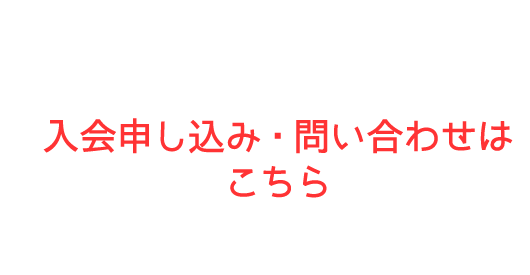Statement
Since its founding in 1962, the New Japan Women’s Association has been working all over Japan for the elimination of nuclear weapons, and for the promotion of gender equality, rights of women and children, and solidarity of women around the world for peace.
End the War – Resolve the Crisis Peacefully in Accordance with the Charter of the United Nations and International Law
On 24 February 2022, the Russian Federation launched a massive invasion of Ukraine, triggering strong condemnation from the international community, which denounced the act as a violation of the Charter of the United Nations and international law. More than seven months on, the war has no end in sight. Instead, it has escalated into the unilateral annexation of Ukrainian territory by Russia and civilian casualties continue to mount. Furthermore, repeated threats to use nuclear weapons and the armed attack on the nuclear power plant constitute criminal act of toying with nuclear weapons and power, which could result in an irreversible catastrophe for humanity and the planet. Once started, war cannot end easily, and therefore war must never be waged for any reason whatsoever.
Immediately after the start of the invasion, the New Japan Women’s Association protested the Russian government and appealed to the international community, saying, “Stop the War!” “No to Nuclear Threats!” and “Peaceful Resolution in Accordance with the Charter of the United Nations!”
Our members took to the street all across Japan with these calls, and run a fund drive to support women, children and citizens of Ukraine. We have donated a total of about 197,000 United States dollars to the United Nations Entity for Gender Equality and the Empowerment of Women, Office of the United Nations High Commissioner for Refugees and United Nations Children’s Fund.
On 21 January 2021, the Treaty on the Prohibition of Nuclear Weapons entered into force, and in June, 2022, the first Meeting of State Parties to the treaty was held. As a women’s organization of the only country to have suffered atomic bombings during the war, the New Japan Women’s Association submitted a statement to the meeting expressing its expectations that “this first Meeting of State Parties will send out a powerful message, categorically opposing the use of nuclear weapons by Russia, and calling on all countries to break away from the illusion of ‘nuclear deterrence’ and join the Treaty on the Prohibition of Nuclear Weapons, thus taking a big step forward toward the elimination of nuclear weapons”. The first Meeting of State Parties successfully adopted the declaration which rejects the fallacy of nuclear deterrence doctrine and expresses the commitment to the elimination of nuclear weapons, along with the action plan. After the first Meeting of State Parties, more countries have joined the membership of the Treaty on the Prohibition of Nuclear Weapons, bringing the total number of 91 signatories and 68 state parties. The move to advance from prohibition to elimination of nuclear weapons is making a steady progress. On the occasion of the Sixty-seventh Session of Commission on the Status of Women, the New Japan Women’s Association reiterates its call on all Member States to join the Treaty on the Prohibition of Nuclear Weapons.
Move Money from Military to People’s Lives and Livelihood, to Gender Equality
The war started and still drags on as the world faces a critical situation with the COVID-19 pandemic deepening economic disparities and poverties, and threatening the achievement of the Sustainable Development Goals. It has created further crises, driving up food prices and energy costs globally. Meanwhile, record-breaking heat waves, devastating floods and other extreme weather events due to the global warming are becoming more frequent and intense. There is no time to lose in the race against climate crisis.
Even during the pandemic, world military expenditure continued to rise and in 2021 it reached an all-time high of 2.1 trillion United States dollars. Japan’s military spending has also increased, hitting a record high for eight consecutive years, and a plan has emerged to double the military spending over the next five years. Government’s failure to deal with skyrocketing prices and extreme fall in yen’s value, coupled with cuts in medical and nursing-care services as well as in pensions, has met rolling outrage of the people. Now that the effort for “build back better” is needed while the climate crisis is threatening the very survival of human beings and the planet, the world cannot afford to spending vast amounts of money in military. Instead, money should be invested in enhancing medical and welfare services, education and in the measure to address the climate crises.
The New Japan Women’s Association is soon to celebrate its sixtieth anniversary on 19 October. Japan today ranks 116th among 146 countries in the gender gap ranking, still lagging far behind the rest of the world. We have pointed out that the factors hindering Japan from making progress towards gender equality are the business circles’ neoliberal strategy which undermines the basis of individuals’ independence and equality, the backlash pushed by the war-glorifying and misogynist right-wing group with its members being at the center of the government, and the lack of peace policies as seen in the country’s military spending hitting a record-high level. Moreover, a cult group’s deep involvement in the attempt to revise the Constitution, which goes hand in hand with massive military buildup, has come under the spotlight. As more and more people are questioning the current status of politics, we are resolved to carry on our grassroots activism for a sustainable future of humanity and the planet, raising our voices that we want to realize a “society where no one is left behind,” and a “nuclear-free, peaceful and just society”. We will continue acting in solidarity with women and civil society throughout the world.
Statement to the 67th Commission on the Status of Women

.png)



